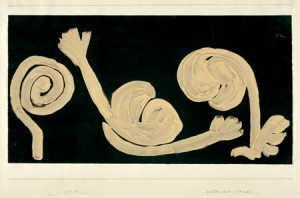biota(biota)
Pronunciation:/bʌɪˈəʊtə/noun
[mass noun] Ecology- the animal and plant life of a particular region, habitat, or geological period:the biota of the river

Origin:
early 20th century: modern Latin, from Greek biotē 'life'
Pronunciation:/bʌɪˈəʊtə/
noun
[mass noun] Ecology- the animal and plant life of a particular region, habitat, or geological period:the biota of the river

Origin:
early 20th century: modern Latin, from Greek biotē 'life'
What is biodiversity? From the Queensland Museum website.
Biodiversity, or biological diversity, is defined by the three Domains of Life: Bacteria, Archaea and Eukarya. It is the sum total of life forms on Earth, the genes they carry and the natural communities or ecosystems they form. 'Biota' is an all-encompassing term that has been given to these life forms. Many millions of life forms now exist, or have existed in the past; however we still know so little about so few.
Maintaining biological diversity within whole ecosystems is vital for their health and functionality. It is the fundamental issue we face this new century.
Healthy ecosystems are essential to provide the many natural resources we need, such as foods and natural sources of drugs.
Functioning ecosystems maintain our essential services to sustain life, such as recycling and purification of water and air, the creation of soils and the break-down of pollution.
Pristine and diverse ecosystems provide many immeasurable social, cultural and recreational values, such as those found in our many unique National Parks and World Heritage Areas. Native animals and plants are essential components of Queensland’s unique cultural identity.
Conserving and managing this biodiversity is a major challenge to the biological sciences.
Maintaining biological diversity within populations of species is also important. It ensures that genetic diversity of a species is preserved, giving them survival options. Reducing population sizes and ranges of species distributions – through overuse or environmental degradation – lowers their genetic potential to adapt or survive in rapidly changing environmental conditions. This reduces flexibility in the uses we can make of our biological heritage and in the health and sustainability of the species themselves. Reducing genetic diversity means increasing extinctions and a loss of the rich experience of nature we value today.
Museum research contributes significantly to the conservation and management of biological diversity of the species, their ecosystems and genetic diversity. This research is basic to the discovery and documentation of species that form these ecosystems and the range and potential of their genetic resources; and to detect changes in ecosystems through changes in species composition in time and space.
 |
| Paul Klee - failed or pathetic germination 1939 |
 |
| diatoms: Ernst Haekel |
Haeckel produced some amazing books of anatomical illustrations of the natural world, including “Art Forms in Nature” and “Art Forms from the Ocean” which focus on creatures (mostly microscopic ones) with notable geometric forms. He takes the liberty to sketch these organisms and organise them according to their shapes and not their zoological families. He also arranges the sketches on each page symmetrically such that the end result is a visual feast of natural baroque forms. Here’s the page on diatoms above.
Mung bean sprouting

wow Sophie - those images from Ernst Haekel are absolutely beautiful! Thankyou for posting such interesting and diverse information here on your blog. I knwo I dont comment often enough, but I do visit heaps and love reading what you have to say!
ReplyDeleteHave a great week, hope you weren't too affected by the floods?
X Donna
Hi Donna,
ReplyDeleteIm glad you pop in when you can... I know you're very busy!
The Haekel images are extraordinary indeed. You can find various books on his work if you liked this!
Personally fine through all that challenging weather... very sad to see how many fared though.
Thanks for your lovely comments ...a really good week to you too!
S x